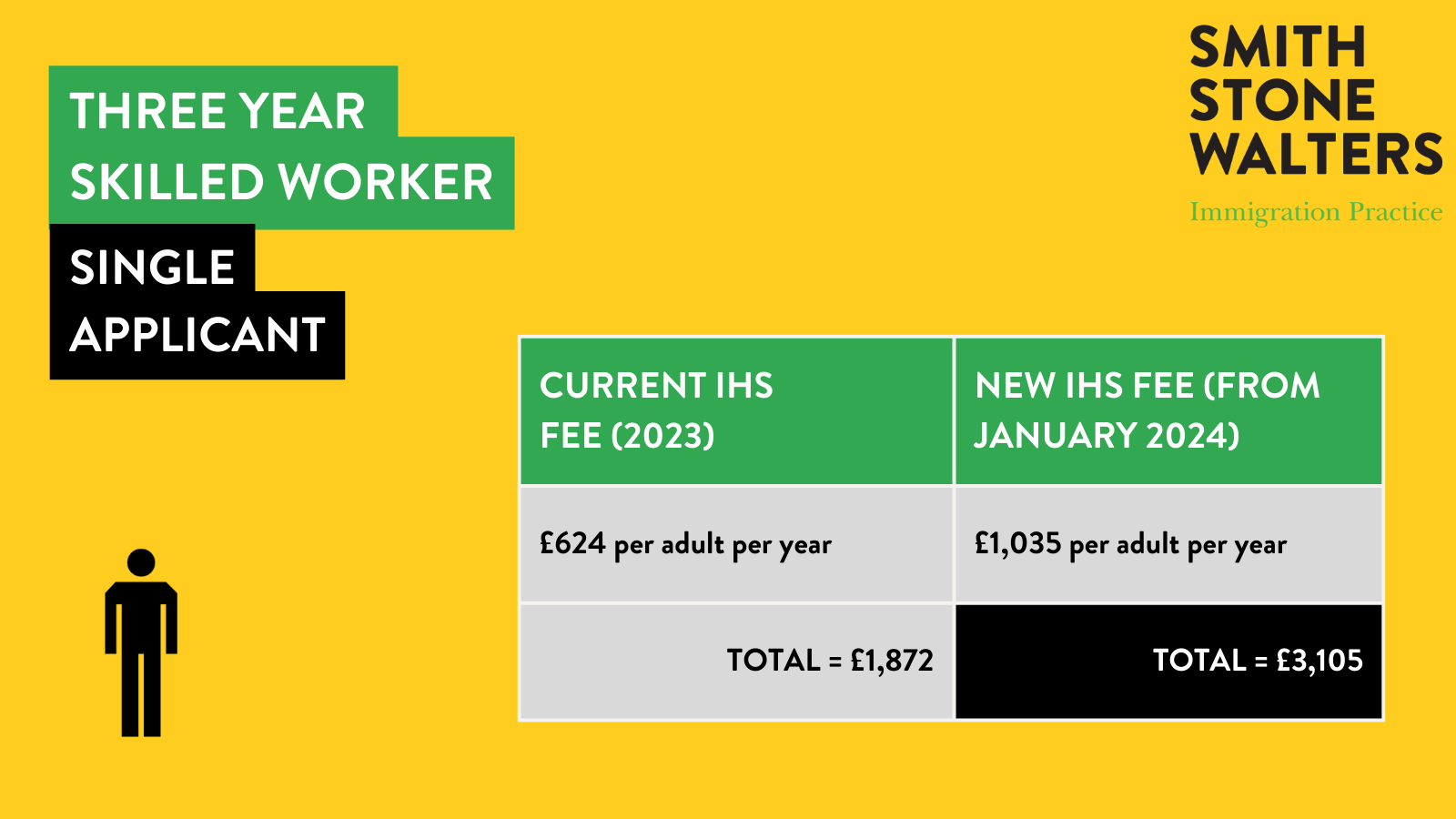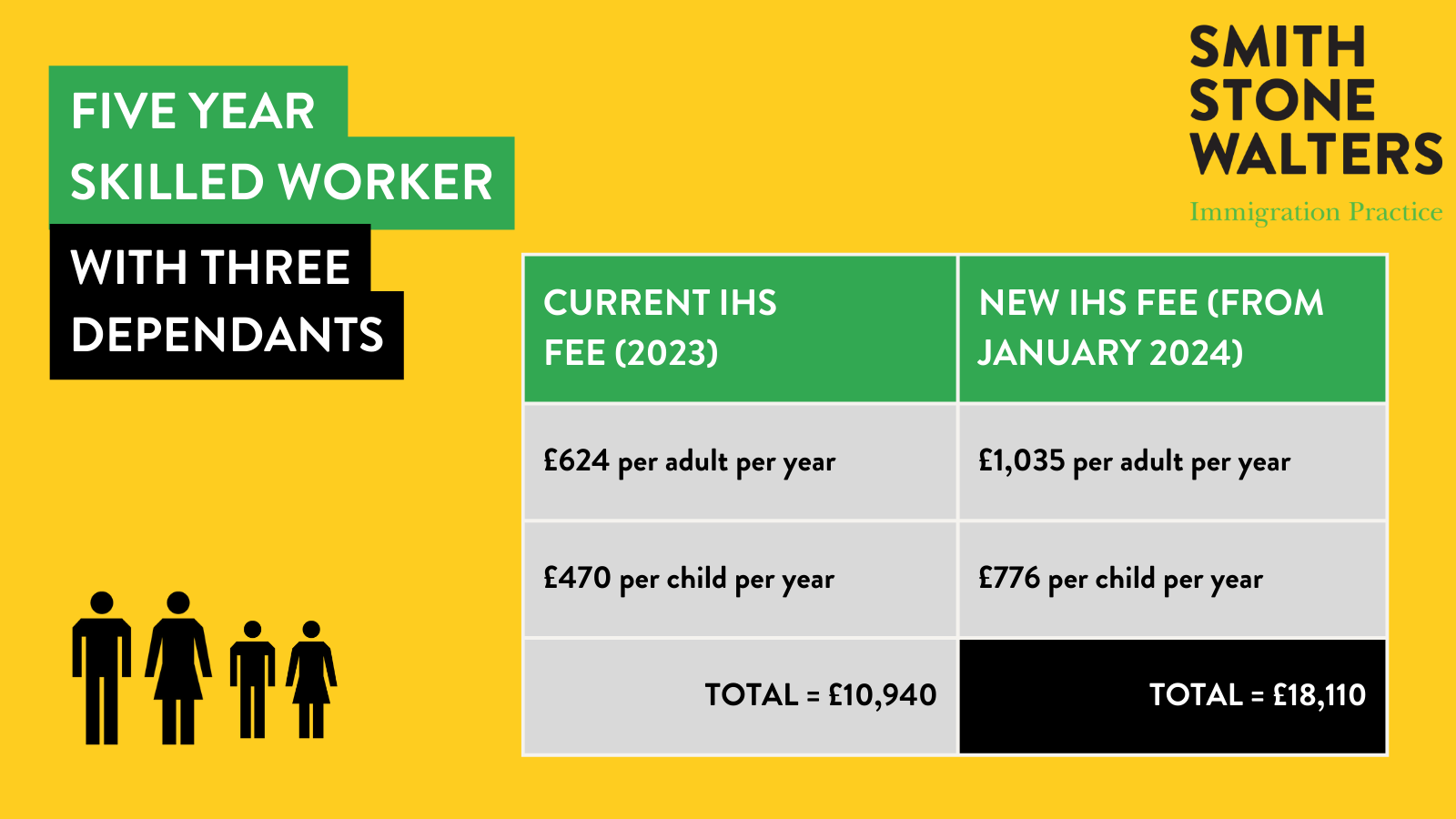Immigration Health Surcharge set to rise in January 2024
The UK government has laid before Parliament an Immigration (Health Charge) (Amendment) Order 2023 which sets out details of the upcoming increase to the Immigration Health Surcharge (IHS). The increase is set to come into effect on 16 January 2024 at the earliest, and must now be approved by both Houses of Parliament.
Once the amendment has been implemented, the IHS will rise from £624 per year to £1,035. The fee for under-18s, students and Youth Mobility Scheme applicants will rise from £470 per year to £776 per year.
The planned IHS increase follows a recent hike in visa and immigration fees for various categories which came into effect on 4 October 2023.
Since its introduction in 2015, the IHS has faced widespread criticism, often described as an ‘additional tax’ on migrant workers who are already paying some of the highest immigration fees in the world, and already help to fund the NHS just as domestic workers do through their employment taxes.
The increase will impact most people intending to apply for a UK visa next year, therefore applicants and employers alike should be aware of the new costs.
What is the Immigration Health Surcharge?
The Immigration Health Surcharge (IHS) is a fee which most migrants coming to the UK must pay in order to access free healthcare on the NHS for the duration of their stay.
Whether you need to pay the IHS depends on the type of immigration permission you are applying for. You will usually need to pay the surcharge if you’re applying for a visa or immigration application:
- for more than 6 months, if you’re applying outside the UK
- for any length of time, if you’re applying inside the UK.
You do not need to pay if you’re applying for a visitor visa or to remain in the UK permanently.
The IHS is compulsory for those it applies to, and you will still need to pay even if you have private medical insurance.
Case studies
The new IHS fees will represent a significant increase to the overall cost of securing a UK visa.
The fee must be paid for each year of your stay, therefore the cost will vary depending on the length of your visa. Those relocating with a family will be hit the hardest, as the IHS must be paid at the relevant rate for each accompanying dependant, as well as the main applicant.
The below case studies highlight some cost comparisons between the current IHS fee and the new fee set to come into effect in January.
Case Study 1: Single applicant

Case Study 2: Family of four

Impact of the rise
Coupled with the higher visa application fees announced in October, the UK’s immigration system may be even less affordable for some applicants come January, particularly for those relocating with family members.
In most cases, employers will not be impacted by the higher IHS fees, as it is usually down to the visa applicant to pay the surcharge for themselves and any accompanying dependants. However, some sponsors do opt to cover this cost for their sponsored workers and therefore should be aware of how the increase will impact your budget.
Employers that do currently offer financial support to sponsored workers towards their visa fees may wish to reconsider company policies in light of the new higher fees.
Support with filing a UK visa application
Those intending to file an application for a UK visa in the near future are advised to submit the application at their earliest convenience, or before 16 January 2024 if they wish to avoid the higher health surcharge.
If you require support with an upcoming visa application, Smith Stone Walters can help. To speak to a qualified immigration advisor, please contact us today.










